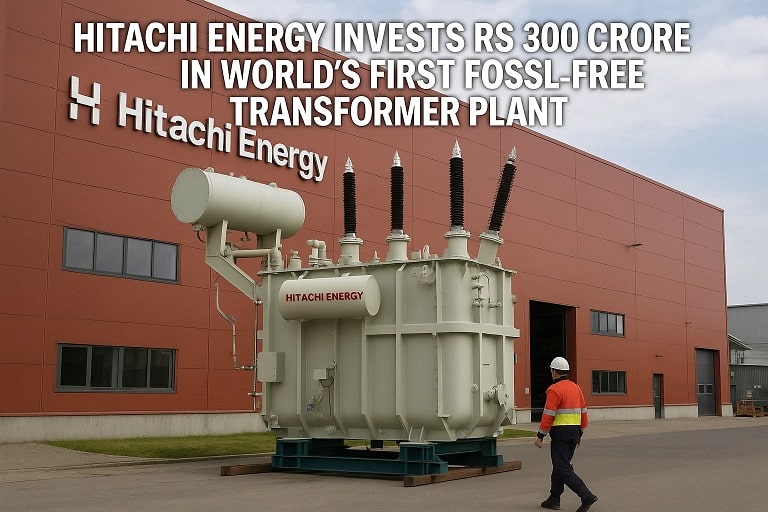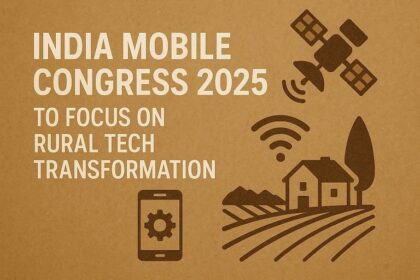Hitachi Energy Invests Rs 300 Crore in World’s First Fossil-Free Transformer Plant
Overview of the Investment
Hitachi Energy India Ltd has announced a Rs 300 crore investment to establish the world’s first fossil-free transformer plant at its Mysuru facility in Karnataka. Announced on August 29, 2025, this initiative is part of a broader Rs 2,000 crore investment plan for India, unveiled in October 2024. The project aims to double the plant’s capacity to produce extra-high voltage (EHV) class pressboard and laminated board, critical insulation materials for power and distribution transformers, while introducing a sustainable, ultra-low carbon production line.
Project Details
- Location: Mysuru, Karnataka.
- Investment: Rs 300 crore.
- Completion Timeline: Mid-2027.
- Capacity Increase: Doubles production of EHV-class pressboard and laminated board.
- Sustainability Feature: Replaces fossil fuel boilers with renewable energy sources, creating a 100% fossil-free production line.
- Global Impact: Boosts supply chains for transformer-grade pressboard, serving markets in India, the UAE, Oman, Kuwait, Saudi Arabia, Turkey, Indonesia, South Korea, and South Africa.
Objectives and Benefits
- Environmental Sustainability: The shift to fossil-free production aligns with Hitachi Energy’s Sustainability 2030 plan, reducing carbon emissions and supporting global net-zero goals.
- Market Demand: Addresses the rising global demand for electricity and the shortage of transformers and components.
- Economic Growth: Strengthens India’s energy manufacturing ecosystem and creates jobs.
- Innovation: Establishes a benchmark for eco-friendly manufacturing in the transformer industry.
Strategic Context
This investment builds on Hitachi Energy’s prior sustainability efforts, including achieving 100% fossil-free electricity in its operations by 2022 and inaugurating a low-impact transformer components factory in Vadodara, India, in 2023. The Mysuru expansion reinforces India’s role as a hub for advanced manufacturing and supports the integration of renewable energy into the national grid.
Challenges
- Technical Transition: Replacing fossil fuel boilers with renewable energy requires significant R&D and infrastructure upgrades.
- Cost Management: Initial investment may face pressure from fluctuating raw material prices.
- Global Supply Chain: Ensuring consistent supply to international markets amidst geopolitical tensions could pose risks.
Frequently Asked Questions (FAQs)
What is the purpose of Hitachi Energy’s Rs 300 crore investment?
It funds the world’s first fossil-free transformer plant in Mysuru, doubling production capacity and introducing sustainable manufacturing.
When will the project be completed?
The project is expected to be completed by mid-2027.
How does this benefit the environment?
By replacing fossil fuel boilers with renewable energy, it reduces carbon emissions, supporting global sustainability goals.
Which markets will benefit from this expansion?
The plant will supply transformer materials to India, the UAE, Oman, Kuwait, Saudi Arabia, Turkey, Indonesia, South Korea, and South Africa.
What is the broader investment context?
This Rs 300 crore is part of a Rs 2,000 crore plan for India announced in October 2024.
What challenges might arise?
Technical transitions, cost management, and global supply chain stability could pose hurdles.














